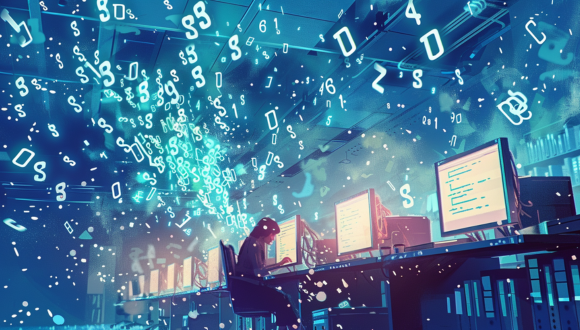Digital Humanities at the Sourasky Central Library
The field of Digital Humanities has evolved, and in some cases, even redefining, traditional research of various subjects, resources, and methodologies using scientific techniques and tools. This research field combines traditional humanities and social sciences queries and research methods with digital tools
 Our Mission
Our Mission
At the Sourasky Central Library we offer support and resources for Tel Aviv University researchers and students who wish to use computer-based technologies to answer research questions related to the humanities and arts.
 Guiding Rules
Guiding Rules
-
Providing guidance, tutorials, and seminars to develop DH skills for conducting research and teaching.
-
Preferring Open Source software tools, making research products easily accessible, and preserving the data after the research has been completed (or financial resources have run out).
-
Providing support and advice in writing research proposals that include the use of digital tools, from the stage of writing the proposal to the implementation stage.
-
Focusing on four major tools: Converting images to text (OCR), Spatial analysis (GIS), Distant Reading (DR), Content Management Systems (CMS).
 Our Services for the Tel-Aviv University Community
Our Services for the Tel-Aviv University Community
-
OCR Services are offered via a designated online form (The service is only provided to the Tel-Aviv University students and staff members) and will be fulfilled within our work schedule.
-
Practical workshops are given on useful tools covering various aspects of the DH field. We publish (occasionally) workshops, that are open to the Tel-Aviv University Community. In addition, a customized workshop can be request for a specific class.
-
Personal guidance for the Tel-Aviv University Community – "One on one" 1-hour session. When needed, a second 1-hour guidance session can be requested (both sessions are free of charge). If an additional (3rd, 4th, etc.) session is needed – each additional one would cost Academic staff members 300 NIS.

 The Digital Humanities Lab
The Digital Humanities Lab
The Digital Humanities Lab at the Sourasky Central Library provides advanced tools and guidance resources for staff and students who employ digital methods and tools in their research. The lab offers the following services and tools:
- 10 advanced computer workstations, each provides a development environment, and equipped with the following tools:
- Python programming language (version 3).
- Visual Studio Code.
- QGIS release 3: the popular Geographic Information System, which supports viewing, editing, and analysis of geospatial data.
- Advanced scanners:
- The Epson WorkForce DS-770II with a feeder, capable of scanning up to 100 pages per session at a rate of 90 pages/45 leaves per minute, is suitable for scanning forms, letters, postcards, questionnaires, and copies of archival documents.
- The Fujitsu ScanSnap SV600 is a no-touch overhead scanner that can scan journals, manuscripts, books, and documents up to 30mm thick in less than 3 seconds per A3 document.
- The ScanTent - Portable, high-quality document scanning using your smartphone.
- Optical Character Recognition (OCR): The lab offers advanced OCR programs, like Google Tesseract, ABBYY FineReader, and more. Additionally, we offer a remote OCR service.
- Automatic transcription service: The lab has partnered with Sonix.ai, which offers a discounted voice recognition platform for deciphering human vocal talk and translating it to text. This platform is based on the IBM Watson Speech to text technology, which uses artificial intelligence to rapidly and coherently transcribe human talk. This service enables audio and video automatic transcription for lectures, interviews, and films, combined with editing options and export to various formats. The system supports transcript in 38 languages, including Hebrew and Arabic. Users should register for the service via this URL.
For more information: Main Entrance Hall | cenlib@tauex.tau.ac.il | 03-6408423

